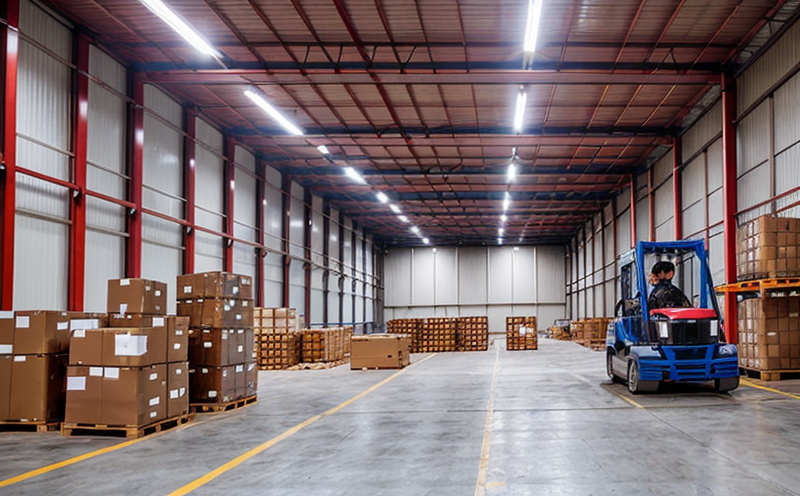ISO 2886 Abrasion Resistance Testing of Packages
The ISO 2886 standard provides a robust framework for assessing the abrasion resistance of packages. This test is crucial in industrial manufacturing and processing, particularly when ensuring that packaging materials can withstand the rigorous demands of logistics and transportation without compromising product integrity or safety.
The abrasion resistance test measures how well a package material resists wear and tear caused by friction during handling, storage, and distribution processes. In industries like electronics, pharmaceuticals, and food manufacturing, where products are often handled multiple times before reaching the final destination, this property can significantly impact product quality and customer satisfaction.
During testing, samples of packaging materials are subjected to controlled abrasion cycles using a rotating drum or similar apparatus. The rate at which the sample degrades is then measured, allowing for a quantitative assessment of its resistance to wear. This information is invaluable in optimizing packaging design for both cost-effectiveness and durability.
Compliance with ISO 2886 ensures that manufacturers meet international quality standards, thereby enhancing their reputation and market competitiveness. By adhering to these tests, companies can ensure they are delivering products that not only meet but exceed customer expectations regarding package longevity and reliability.
The standard also helps in identifying potential issues early in the product development cycle through rigorous testing protocols. This proactive approach allows manufacturers to make necessary adjustments before mass production begins, reducing waste and improving resource efficiency.
For quality managers and compliance officers, understanding ISO 2886 is essential for ensuring that their organization remains compliant with global standards. R&D engineers can leverage this knowledge to innovate new materials and techniques that enhance packaging performance. Procurement teams will benefit from knowing what criteria they should look for when selecting suppliers.
Industry Applications
| Application Area | Description |
|---|---|
| Pharmaceuticals | To ensure that packages protect sensitive medications from physical damage during transport. |
| Electronics | To safeguard delicate components and assemblies against abrasion in harsh environments. |
| Foods & Beverages | To maintain the integrity of containers used for storing perishable items like dairy products or fresh produce. |
| Chemicals | To prevent leaks from containers that store hazardous substances, ensuring worker safety and environmental protection. |
- Pharmaceuticals: Ensures that packages protect sensitive medications from physical damage during transport.
- Electronics: Safeguards delicate components and assemblies against abrasion in harsh environments.
- Foods & Beverages: Maintains the integrity of containers used for storing perishable items like dairy products or fresh produce.
- Chemicals: Prevents leaks from containers that store hazardous substances, ensuring worker safety and environmental protection.
International Acceptance and Recognition
The ISO 2886 standard is widely recognized across various industries for its stringent quality control measures. It has been adopted by numerous organizations worldwide as a benchmark for evaluating packaging materials' abrasion resistance.
Incorporating this standard into your manufacturing processes demonstrates commitment to excellence and reliability, which can be a significant differentiator in competitive markets. Many companies have found that meeting ISO 2886 requirements enhances their reputation among consumers who value product safety and quality.
Compliance with these standards also facilitates smoother supply chain operations by ensuring compatibility between various stages of production and distribution. This interoperability reduces bottlenecks and improves overall efficiency within the supply chain network.
Environmental and Sustainability Contributions
- Promotes Recycling: By enhancing package durability, less waste is generated throughout the lifecycle of a product.
- Energy Efficiency: Durable packages require fewer replacements over time, leading to lower energy consumption associated with manufacturing new materials.
- Resource Conservation: Longer-lasting packaging means reduced raw material usage and processing costs.
The ISO 2886 abrasion resistance testing contributes positively towards sustainable practices by promoting the use of high-quality materials that are less prone to degradation. This not only helps in reducing waste but also encourages the development of eco-friendly alternatives for package design.
Manufacturers who adopt these standards can contribute significantly to global efforts aimed at minimizing environmental impact while still maintaining strong business performance.





